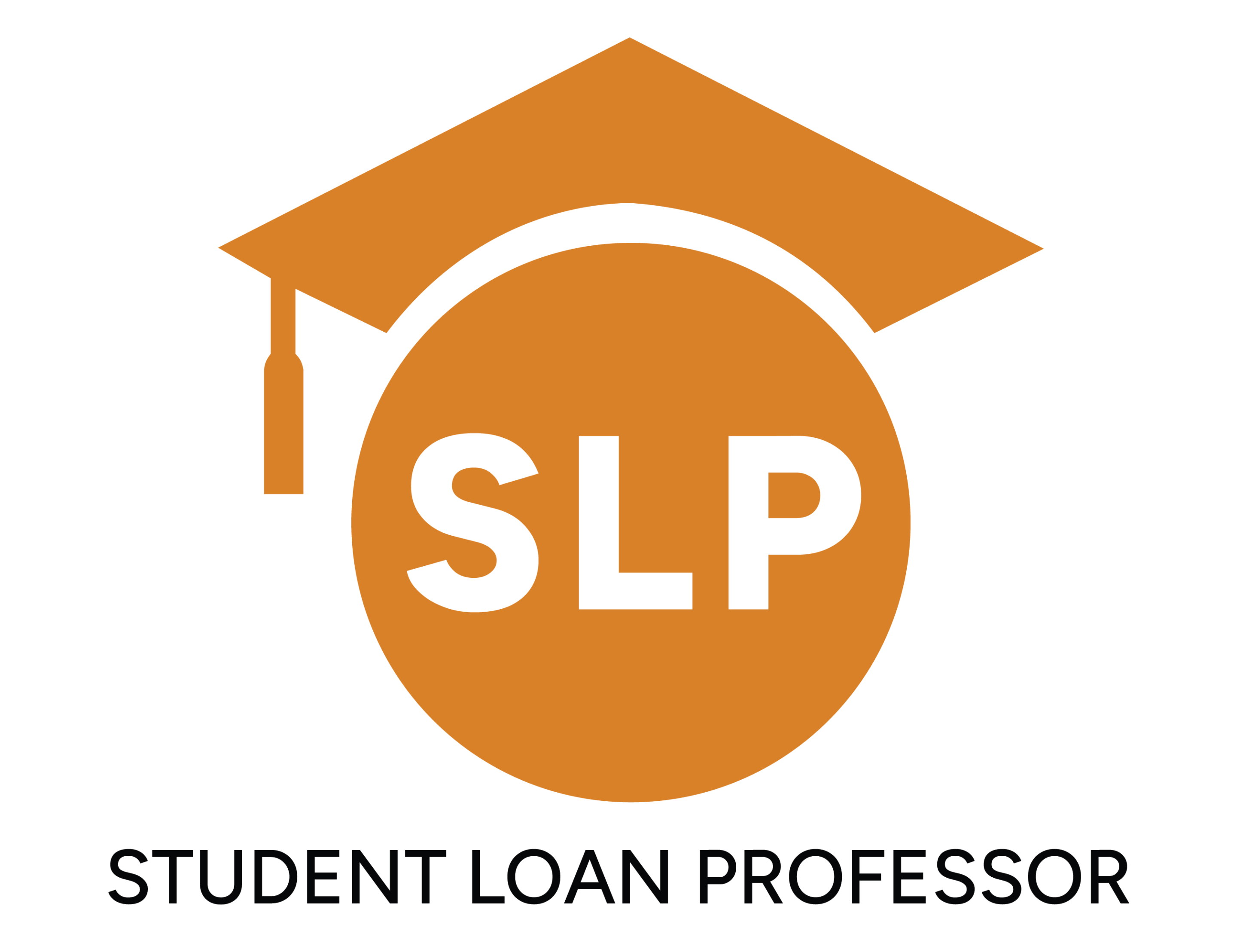Even small differences in lender rates can significantly impact your overall debt over time. This is why finding the best student loan rates is a vital step in your loan application process.
News flash: medical school is expensive! If you are considering becoming a physician, you likely already know this.
Most medical students fund their education through Federal Direct loans such as Direct Unsubsidized and Direct Grad PLUS. Federal loans offer distinct benefits, including loan protection programs, and you are allowed to borrow up to the school’s posted cost of attendance (COA).
However, these COA limits don’t always cover all of your financial needs, so it’s never a bad idea to explore all of your funding options.
In this article, we’ll look at some of the best rates available in the private sector and compare them to Federal loans to help you make an informed decision.
We’ve reviewed some of the best ones you can find in the market for medical students. Check them out!
Top Loan Rates for Medical Students
| Earnest APR: Fixed starting at 3.69%, Variable at 5.62% | College Ave APR: Fixed starting at 3.74%, Variable at 1.29% | Citizens Bank APR: Fixed from 4.24% | Juno APR: Fixed from 3.49%, Variable starting at 0.94 |
1. Earnest
Highlights:
- Credit score requirement: 650
- Minimum fixed APR: 3.69%
- Minimum Variable APR: 5.62%
You can find some of the best competitive fixed and variable APRs on Earnest, with autopay discounts to further lower interest costs. This lender emphasizes transparency and flexibility, which is a plus for borrowers who want to avoid hidden fees or complicated terms.
Rather than providing pre-set options, Earnest asks you to estimate your monthly payment capacity and uses that to suggest loan terms. As a medical student, this approach could be a lifesaver as you can choose to delay full repayment until after graduation.
Requirements to Qualify
- Require a minimum credit score of 650 or a cosigner
- Must have a minimum annual income of $35,000
- Require a minimum of three years of credit history
- Must be a US citizen or a permanent resident
- International students would need a US-based cosigner
- Preferably have at least two months’ worth of emergency savings (not compulsory)
| Pros | Cons |
| Customizable loan terms Extra time after graduation before repayments startNo origination or prepayment feesCompetitive rates | Cosigners cannot be released unless the loan is paid off, or you opt for student loan refinancing A minimum credit score of 650 is needed |
2. College Ave
Highlights:
- Credit score requirement: N/A
- Minimum fixed APR: 3.74%
- Minimum Variable APR: 1.29%
One vital step you should consider before taking out a loan is prequalification. It helps you check potential rates and loan terms without affecting your credit score.
Thankfully, College Ave offers an online prequalification. Once pre-qualified, you can select any of their available loan options, depending on your needs.
Like Earnest loans, College Ave offers autopay discounts on APR starting at 3.74% for fixed rates and as low as 1.29% for variable interest rates. Combining this with extended grace periods and flexible repayment options makes this a solid option for medical students.
Requirements to Qualify
- Good credit score or cosigner with sufficient credit history
- Stable income source
- Must be enrolled at least half-time in a degree program at an eligible institution
- Must be a US citizen or a permanent resident
- International students seeking loans would need a US-based cosigner
- Must be the age of majority (usually 18) in their state of residence
| Pros | Cons |
| You have several repayment options, including flat and deferred payments Extended grace periods for medical students No origination feeFast and simple online application process | Limited forbearance optionsStrict cosigner release requirements |
3. Citizens Bank
Highlights:
- Credit score requirement: 640
- Minimum fixed APR: 4.24%
- Minimum Variable APR: N/A
Citizens Bank provides loans that cover up to 100% of school-certified education costs. This allows medical students to finance their entire education through a single lender.
Additionally, they offer multiyear approval. This means you can secure financing for several years of school with a single application. This ensures that you don’t go through repeated credit checks.
As a private lender, Citizens Bank assesses your application based on several factors, including credit score and income, to determine your eligibility and interest rates.
Once your loan is approved, you have access to a range of flexible repayment options, including deferred payments, full principal and interest payments, etc., giving you the control to manage your loan according to your financial situation.
The best part of Citizens Bank’s loan program is their autopay/loyalty bonus. As an existing bank customer or for enrolling in autopay, you can get a 0.25% interest rate reduction.
Requirements to Qualify
- Minimum credit score of 640
- Strong credit history or a cosigner with one
- Sufficient and stable income to manage repayment
- Must not have any recent bankruptcies or accounts currently in collections on their credit report
- Must be a US citizen
- Must be enrolled in an eligible, degree-granting medical program.
| Pros | Cons |
| Allows funding for multiple years with just one application Provides up to 0.50% interest rate discount for existing bank customersAllows up to six-month grace period after completing residency Offers flexible repayment options | Forbearance options aren’t very generous No variable rate options |
4. Juno
Highlights:
- Credit score requirement: 650
- Minimum fixed APR: 3.22% – 7.89%
- Minimum Variable APR: 1.34% – 7.30%
Unlike our other recommendations, Juno operates a student loan platform that negotiates rates directly with lenders on behalf of its members. Think of them as a collective bargaining service, pooling students together to get the most competitive loan terms.
Their approach is best for students with high educational expenses, such as medical students.
To access loans on this platform, you can sign up on their platform, providing the required info about yourself and your credit score. After that, you can join the negotiation rounds every spring to access the best deals.
Juno presents the secured rates and terms to its members, who can then choose whether or not to proceed with the offer after concluding negotiations.
This group buying and negotiation approach can offer rates you might not find elsewhere. However, you might not qualify for the loan or find terms that align with your goals.
Requirements to Qualify
- Entry is free
- Must be US-based
- Requirements would depend on the specific lender chosen after negotiations
| Pros | Cons |
| Low interest rates through group negotiation Membership is free Quick application processExclusive discounts for automatic payments | You’re limited to Juno partner lenders Not available for international students without a US-based cosigner |
What To Consider Before Taking a Medical Student Loan
While securing the best rate can greatly reduce your overall debt, there are other important factors to consider before obtaining a medical student loan.
Loan Type
Deciding whether to take out a federal loan or one from a private lender is a great starting point. Federal loans are often the best first choice owing to their loan protection programs.
Yet, the amount available on federal loans might not be sufficient to cover your educational expenses. Hence, you might need a private student loan in this case.
Repayment Flexibility
Different lenders offer various repayment plans. The most popular ones include:
- Interest-only payments
- Fixed payments during school
- Deferred payments until after graduation
Understanding these options and how they affect your debt can ensure proper debt management.
Several private lenders are now offering extended grace periods or deferments during residency. Ensure your lender offers such opportunities, as they allow you to establish your career before starting full repayment.
Cosigner Requirements and Release Options
Some private student loans may require a cosigner, especially if you have limited credit history. Ensure the lender offers a favorable cosigner release option, allowing the cosigner to be removed after a set number of on-time payments.
If you don’t pay on time, it will also impact your cosigner’s credit history. Ensure you have a well-planned repayment strategy before pulling in a co-signer. You can reach out to Student Loan Professor to help create a repayment strategy.
Loan Limits
Federal student loans have annual and aggregate borrowing limits, which might not cover the total cost of medical school. However, private loans can cover up to the total cost of attendance but may require a higher credit score, have higher interests, and offer no debt protection.
The best strategy in this case is to combine both loan options. Max out your federal loan allowance, and if you need more funds, you can balance it with private loans.
But remember to only borrow what you need – even an extra dollar can add up to your total debt in the long run.
Loan Terms and Fees
When offered a loan, you often have two options for repayment: short–term or long–term. Evaluate the term length based on your situation.
Short-term loans may have a higher monthly payment but less total interest. Long-term loans are the exact opposite. If your situation allows you to pay up within a short time, there’s no reason to take out a long-term loan, as it’ll only accrue more interest than necessary.
Some private loans also have several fees, from origination to late fees. Ensure you know if your lender has any of these in their policy, as they could add to the overall loan cost.
Special Loan Features for Medical Students
Medical school can be demanding, which is why it’s best if your loans have the right features to help you meet these demands. Here are some features you can find on the best medical student loans.
- Extended Grace Periods: Many lenders offer extended grace periods (up to 36 months) for medical students.
- Deferment During Residency: Resident doctors are often not paid much, and repaying a loan at this point might be tough. The deferment feature allows medical students to defer payments during their training for up to five years, reducing the financial burden.
- Interest-Only Payments During School: As the name implies, this feature allows you to pay only monthly interest until you graduate. This reduces your total debt during medical school. However, it’s not offered by all lenders.
- Autopay and Loyalty Discounts: The whole idea of looking for special features when taking a medical student loan is to reduce payments. Autopay and loyalty discounts provide you with this option. You can get an interest reduction of at least 0.25% from most lenders that offer this feature.
Get Help from Experts at Student Loan Professor
You’ve learned about the current best rates for medical students. However, these rates will not matter if you don’t have a proper exit plan—a debt repayment strategy.
At Student Loan Professor, we’re intentional about building workable repayment strategies around your financial situation.
If you want to stay clear of debt stress, you should check out our range of services or contact us to get started.
Brandon Barfield is the President and Co-Founder of Student Loan Professor, and is nationally known as student loan expert for graduate health professions. Since 2011, Brandon has given hundreds of loan repayment presentations for schools, hospitals, and medical conferences across the country. With his diverse background in financial aid, financial planning and student loan advisory, Brandon has a broad understanding of the intricacies surrounding student loans, loan repayment strategies, and how they should be considered when graduates make other financial decisions.



![Our Honest Thoughts On Aidvantage Student Loans [For 2025]](https://www.studentloanprofessor.com/wp-content/uploads/2024/10/SLP_fallback_2-no-logo-400x250.jpg)

